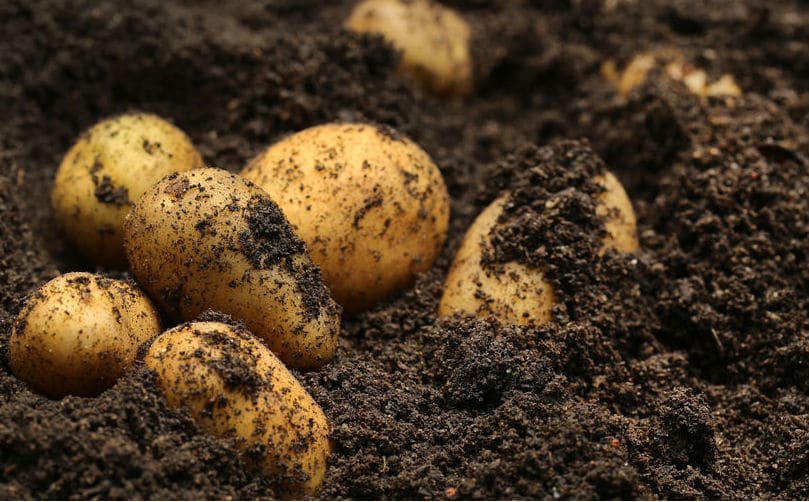The Northwest Potato Research Consortium recently approved a combined $1.5 million in grant funding to 37 research projects.
The consortium, formed in 2012, is funded with $650,000 each from the Idaho and Washington potato commissions and $200,000 from the Oregon Potato Commission to support regional potato research.
Potato breeding program
The consortium awarded $362,000 toward the cooperative potato breeding program — slightly less than last year because University of Idaho storage researcher Yi Wang, who was involved in the effort, has accepted a job at the University of Wisconsin.
Growing healthy potato crops without fumigation
Oregon State University researchers Markus Kleber and David Myrold were awarded about $80,000 from the consortium for the initial year of a two year soil focused project. They believe soil holds the secret to raising healthy potato crops without using fumigation.
Kleber, an associate professor of soil and environmental geochemistry, and Myrold, a soil microbiology professor, will commence this summer with a two-year research project to test their theory. The researchers will take several soil samples from regional fields, both from growers experiencing little trouble with verticillium wilt and from growers with widespread infections. They aim to identify the microbial communities and traits of healthy soil that help potato plants withstand verticillium wilt — which causes the early death of plants — and make recommendations to help growers achieve optimal soil conditions.
Kleber said earlier research in Idaho demonstrated a significant reduction in verticillium wilt in fields in which plants had been raised solely for soil health benefits as cover crops, or tilled into soil as “green manure.”
Potato consumption and inflammatory bowel disease
Washington State University food science associate professor Meijun Zhu received about $20,000 toward another project of note, investigating how consuming potatoes might relieve inflammatory bowel disease symptoms. Zhu said the study — involving mice with chemically induced stomach irritation — is entering its second year, and mice fed a diet of purple potatoes have experienced statistically significant health improvements. In the future, Zhu hopes to also study white potatoes, and to characterize the molecular mechanisms responsible for potato-related health benefits.
Potato cyst nematodes research
The consortium also awarded $134,000 to University of Idaho’s pale cyst nematode program, which is assisting in efforts to eradicate the quarantined pest in a small region of Eastern Idaho. Funds will go toward research on so-called trap crops, which stimulate hatching in the absence of a viable host, and on understanding how PCN interacts with potato plants on a molecular level.











